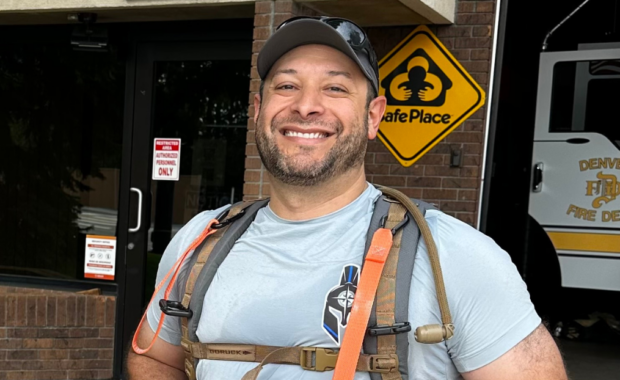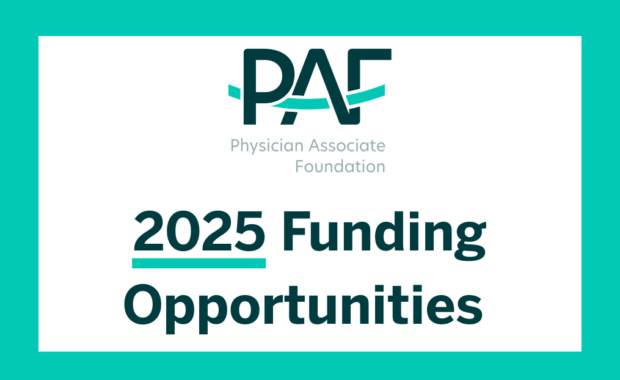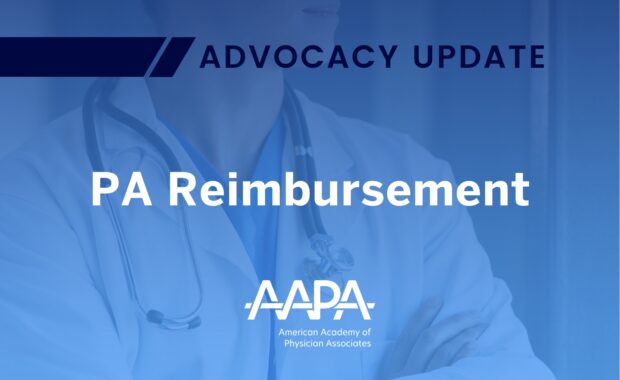PAs Respond in El Paso Shooting Aftermath
“It’ll be part of our lives forever,” PA says
November 5, 2019
By Hillel Kuttler
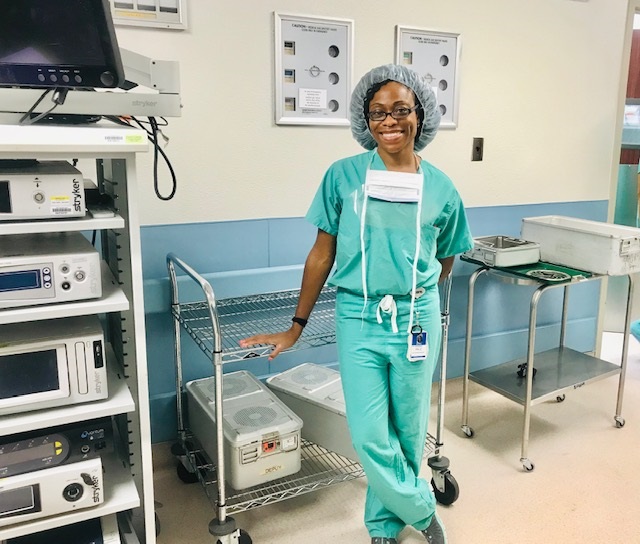
April Frowner, PA-C, was doing rounds at El Paso’s Las Palmas Medical Center on the morning of Saturday, August 3, when she heard about a shooting at a Walmart store nine miles away. Frowner figured it to be a standard crime, but her collaborating physician, Stephen Flaherty, MD, called to say that a mass shooting had occurred.
Police would investigate it as a hate crime because the suspect, a Texan from across the state, had posted an anti-Hispanic screed revealing him to be a white supremacist. El Paso, a majority-Latino city, lies along the border with Mexico. Twenty-two people were killed in the shooting.
PA urged to Del Sol Medical Center
Flaherty instructed Frowner to head to the Del Sol Medical Center, where victims would be brought for treatment. She texted her parents, who live near the store, urging them to remain at home. Frowner drove three highway exits to Del Sol, passing the Walmart. Ambulances raced by. Helicopters flew overhead.
At about 11:00 a.m., Frowner reached Del Sol’s emergency department, where “the commotion was just starting,” she recalled in a mid-October phone interview. Frowner first examined a woman who’d been shot in the abdomen. She was awake, alert, and stable, but was taken to the operating room to ensure that she wasn’t bleeding internally.
Frowner saw trauma surgeons and off-duty physicians still in civilian clothes examining just-arrived patients. Janitors quickly made rooms available. Medical-sales representatives and cafeteria workers became couriers from the blood bank.
“It was awesome,” she said. “Everyone was helping. It was a chaotic situation and busy and scary, but I didn’t see anyone freaking out or overwhelmed.”
[PAs Help Provide Care for Las Vegas Shooting Victims]
Jiselle Del Cid, PA-C, was already at work at Del Sol. Her typical trauma case meant one person injured in a car accident. On this day, she’d have 12 trauma patients, all with bullet wounds that she said were larger than an apple.
“It was like a war zone,” Del Cid said. “The moment all of them came in, it’s like a gear in my head turned.”
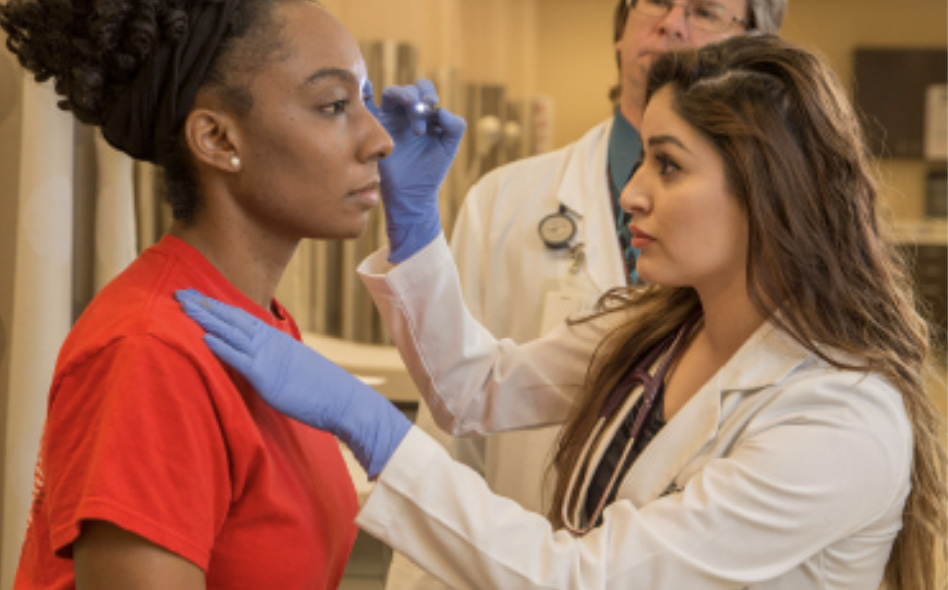
She stabilized patients, took their histories, helped insert a catheter, initiated IV lines, and dictated orders for fluids and labs. In the operating room, she assisted on three exploratory laparotomies.
An elderly couple had been shot, the husband while protecting the wife. The man groaned as he lay on a gurney in the corridor. He called Del Cid “darling” and begged her, “Don’t let me die.” On Sunday, Del Cid and a physician visited the man’s wife, her room filled with relatives. They informed the family that the man wouldn’t make it through the night.
“It was horrible: the sobbing, crying, and repeating over and over, ‘This can’t be possible,’ ” Del Cid said.
Del Cid and the physician stepped out momentarily to compose themselves.
They re-entered. The wife agreed to place him on life support to await their daughter’s arrival from out of town. At 2:00 p.m. Monday, the wife was wheeled into her husband’s room on the second floor.
Del Sid saw the man’s daughter. “I held her and said, ‘I’m so sorry for your loss,’ ” she recalled. “I said a few kind words to her. I don’t know if they helped.”
Medical care key during crisis
A Dallas-based executive of the company for which the two work, Envision Physician Services, hosted a dinner meeting several nights after the attack for some of the staff. The discussion covered more than the medical. Attendees shared their emotional struggles, including juggling concern for both patients and for their own families.
“We were able to talk about the experience and how it affected us, [and] what it was like when you’re at the hospital while your own family is out there and exposed,” Flaherty said. “It established a bond so that later, you can always talk to [each other] because you’ve shared that experience.”
[How PAs Can Use Their Skills in Disaster Medicine]
PA Anthony Miller, the director of Shenandoah University’s PA Studies Program, said that he’s “very proud” of Frowner, his former student, “for responding and having a role in potentially saving people’s lives.”
Frowner’s first patient, the woman shot in the abdomen, made it through the operation. Frowner followed her on rounds through discharge and now sees her for follow-up appointments. Now, only one of the patients shot remains hospitalized at Del Sol.
“It was more than minority people who were shot and injured. It was white and black, too. I don’t understand hate. You can’t live without diversity,” she said.
As Frowner thought back to early August, she was both angry at the racism behind the mass murder and sad that El Paso was targeted.
“It felt like a personal attack”
“It felt like a personal attack because this is my home,” she said. “It’s almost like an awakening, that we’re not as safe and as off-the-map as we thought we were. It’s a reality check for many in the community.”
At the same time, Frowner mentioned pizza chains and sandwich shops delivering meals to the caregivers. She visited an impromptu memorial site at the Walmart. A bus stop was named for one victim.
“It was a horrible event that brought the community together in a beautiful way,” she said. “In a way, we’re all patients now because we have to take what’s happened and process it and move forward. It’ll be part of our lives forever.”
Del Cid also grapples with the fallout. A North Carolinian, she attended the University of Texas, El Paso and, she said, “fell in love with the community,” like the way people smile genuinely and are welcoming. Complete strangers helped her move residences. She twice left El Paso, but “something keeps pulling me back,” she explained.
She mentioned seeing a therapist to help process the trauma from August 3. The “haunting words” of the man on the gurney, she said, “sent me into therapy.” Nightmares strike about twice a week, including the day before this phone interview. She wishes she could’ve done more, helped additional people, prevented death. The sense of feeling “almost like we’re incompetent,” she said, “is something I’m working on.”
Does she feel she did some good at a time of need?
“No,” Del Cid responded without hesitation. “I don’t feel like a hero at all. The heroes are the ones directly affected by it. They’re the ones who have fond memories of the loved ones they’ll never see again.”
Hillel Kuttler is a freelance writer and editor. Contact him at [email protected].
Read More
Disaster Medicine Association of PAs
After Disasters, PAs Step in to Provide Critical Medical Care
Thank you for reading AAPA’s News Central
You have 2 articles left this month. Create a free account to read more stories, or become a member for more access to exclusive benefits! Already have an account? Log in.
